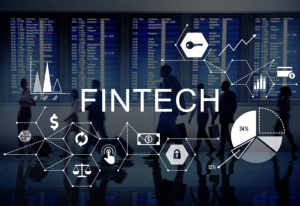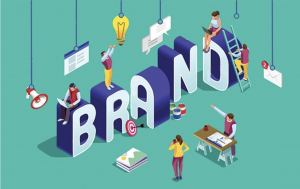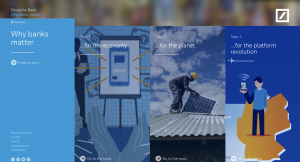As we enter a new decade, Financial Services (FS) are facing one of the biggest challenges ever and the choice to stand still and keep doing what they are doing is no longer an option. According to Gartner by 2030, 80% of heritage financial services firms will go out of business, become commoditised or exist only formally but not competing effectively. The historical monolithic institutions built on legacy structures, protected by size and history are trading on scale and trust (or indeed apathy!), but for how long can this last with 33% of Global consumers considering a new financial organisation when considering a new service? Everything is up for grabs.
This doesn’t mean that the traditional will die at the hands of the new. It means that the monumental changes in technology, demographics, customer expectations, regulation and operating models where competitive reach is no longer determined by branches or office will demand agility, transparency and innovation to remain relevant, and arguably, survive.
In the last 5 years, the ‘neobanks’ such as Monzo, Revolut and Starling have changed the game with new interfaces, mobile tools and data, indeed according to AT Kearney’s research, European ‘neobanks’ customer base has grown by more than 15 million since 2011. On the other hand, retail banks’ customer base has declined by 2 million. It is projected that by 2023, Europe’s ‘neobanks’ will win up to 85 million customers, reaching over 20% of the population over the age of 14. With the pace of change as it is, nobody can predict the future but the challenges are clear – the question is, how are FS institutions going to meet them and thrive in a highly exciting and opportunistic era?
At Vivaldi, we understand the intrinsic bond between business and brand and how to succeed in this age of disruption. Brands and businesses need a new roadmap, one that harnesses technology and data to connect more deeply with customers, and rethink how to work within the larger ecosystem to create impact in times of change. As such, here are 3 areas we believe FS should consider to take advantage of present opportunities:
1) BE MORE (CAREFULLY) HUMAN CENTRED

Being customer centric isn’t just about providing great products or great customer service, it’s about creating a culture that lives and breathes your customers and intrinsically understands their needs and wants. Forrester recently found that brands that have superior customer experience bring in 5.7 times more revenue than their competitors. Companies that invest in customer experience win new (and more importantly retain and grow) existing customers especially when ease of switching suppliers is increasingly automated and simple.
These companies need to place data and insights at the heart of their business to really get to know their customers, what they want and what they value. According to the World Retail Banking Report, the key elements customers look for in finance are centred around relevance and simplicity they are looking for lower costs, ease of use and faster service and better communications. Simple, right?
This means that finance companies need to consider the creation of tools to help manage money more effectively based around lifestyle choices including the integration into people’s lives including elements such as voice, more effective apps and chatbots. However, customer data must be used responsibly. Data security and data privacy are paramount in customer expectations. But this also presents a ‘Catch 22’ – Whilst 41% want data collected for greater convenience and to prevent fraud, there is also concern around the collection and retention of personal data, IBMX says that ‘FS and insurance are the most targeted areas of business for cyber attacks over the last 3 years’.
Great examples of financial services companies embracing this approach include Citizens, who map the customer journey and predict what customers will need next, Ally Bank ,who partner with other digitally minded companies to provide convenient end-to-end customer solutions and Charles Schwab who leverage data to understand customers, track trends and changes and Discover who combine AI with strong human interaction to predict when customers will need financial help.
How can Vivaldi help?:
Talk to us about how…. we can help you put the customer is at the heart of your thinking and your methodologies – understanding what they want and more importantly don’t want is imperative. Being ‘customer obsessed’, focusing on customers and declaring a devotion to customer centricity plays a key part in the ‘Customer centricity PLUS mindset’ we identify in our platformization study
In addition, working on organisation and culture also engenders this approach. Vivaldi works to transform businesses from the inside out by conducting cubicle anthropologies, designing and rolling out employee engagement programs, facilitating action-learning workshops and building marketing capabilities and teams.
2) PEAK FINTECH OR OPPORTUNITIES ABOUND ?

According to Shachar Bialick, the founder and CEO of Curve, there are now more than 10,000 Fintech startups around the world, indeed many are calling that we have reached ‘peak Fintech’ and that the industry needs to enter a period of maturation and integration in order to survive. That said, this is also driving huge developments in the industry. According to EY, 37% of Global FS institutions claim to have a Fintech product available, 22% claim they have a pilot, and 40% are at R&D stage. This spans a huge variety of services ranging from money transfers, payments and insurance, to savings, investments, budgeting, finance planning and borrowing.
So where to focus? Interestingly, often the fastest growing and changing economies in the World show the way for the future. Africa is an excellent case in point where mobile phones are increasingly relied upon to send and receive money. In fact, 10% of GDP in transactions now occurs through mobile, which has given rise to a huge growth in companies such as MPesa.
Mobile is also at the heart of our becoming an increasingly cashless society using mobile wallets, cashless cards and digital payment options. Some countries are leading the way in this – Vietnam has 10% cash target for all transactions by 2020 (Philippines set 20%) however, in the Western World, this move is marked by demographic patterns, with the Pew Research Center finding that those with a household income of $75,000 or more, are more than twice as likely as those earning less than $30,000 a year to say they do not make any purchases using cash in a typical week (41% vs. 18%).
A large part of the Fintech revolution is driven by Blockchain technology and whilst the promise is yet to be fully realised, it is increasingly used daily across the world, even by Facebook, whose Libra product shows that the mainstream is almost here. Existing trust issues caused by bitcoin and hacking incidents are offset by the opportunity to create a cheaper infrastructure, more speed and increased protections – like IP protection and combating fraud and cyber crime. Transparency and ease of tracking will enhance areas including FS settlement across the board, part ownership of items such as cars / houses (which is on the increase), as well as more effective encryption of data and blockchain, which is being used to help solve sustainability and low-carbon emissions tracking.
Interestingly, Fintech (and in particular blockchain technology) has itself created a rival to many mainstream FS products that use the very same foundation to create a platform for people and businesses to engage with each other and transact. The sharing economy, demonstrated through companies such as Lending Club, Zopa, Prosper and SmartyPig, is already reshaping the industry through peer to peer lending, social payments, crowdfunding and P2P insurance, and this will only become more prevalent as it requires less cost to facilitate and therefore provides greater equality of opportunity. The challenge for FS institutions is that this disruptive nature and its disintermediation means they stop being the intermediary and therefore need to reconsider their space in the ecosystem.
How can Vivaldi help?:
Talk to us about how…..the biggest barrier to implementation of many Fintech opportunities is interoperability and unification of systems across financial institutions. If this unification can be achieved the network effect can become exponential. At Vivaldi, we can help you through our focus on platform economics that harnesses technology and data to connect more deeply with customers and to rethink how to work within the larger ecosystem. Our proprietary platform thinking methodology can help show you how to reframe challenges and opportunities from the customer’s perspective by leveraging the dynamics of a customer-first & digital-first world.
3) CONSIDER THE IMPORTANCE OF BRAND AND HAVING A PURPOSE

In late 2019, The Business Roundtable – a group of CEOs from major U.S. corporations (including many FS institutions) issued a statement with a new definition of the ‘purpose of a corporation’ dropping the age-old notion that corporations function first and foremost to serve their shareholders and maximise profits, but instead that it should be about investing in employees, delivering value to customers, dealing ethically with suppliers and supporting outside communities. In an industry that has traditionally focused on shareholder value, this has big implications for financial institutions and most importantly their wider brand.
One of the signatories, BlackRock’s chief, Larry Fink, wrote in his 2019 annual letter to shareholders that “Purpose is not the sole pursuit of profits but the animating force for achieving them.” This is a big step and provides a new paradigm and platform from financial services companies can build and thrive, however it can be a real challenge to build a strong brand in the commoditised, regulated and often homogenised world of financial services. As products and solutions are often very similar across asset managers, corporate banks and pensions providers, marketers are looking to brand purpose as their differentiator. But what exactly does that mean, and can it be considered a silver bullet?
Deutsche Bank’s initiative #whybanksmatter looks at the charges happening around us and what they mean for bank’s role in the economy, the planet and the platform revolution. This includes how banks can become valuable partners for businesses, households and investors focusing on what is changing, what needs to change and how banks can help make great things happen – including investing in people and projects that make a positive difference in the world.

The most important aspect is that FS institutions need to avoid ‘woke washing’ by using the language and imagery of worthy causes to increase sales, without backing up this rhetoric with action. Companies need to ‘walk the talk’ and ensure that there is a strong employee engagement. It is fundamental that employees understand the brand purpose and their role in delivering this purpose, from executives down to customer service staff, and connecting to an idea of mission is hugely strong in motivating employees, inspiring new and existing customers and in setting the bar for all partners.
To ensure that the purpose is clear and becomes an ongoing commitment companies also need to communicate this consistently and repeatedly and integrate into all products and initiatives including physical and digital interactions to increase mental availability as well as ultimately build into company metrics of success.
How can Vivaldi help?
Talk to us about how……For over 20 years Vivaldi have been an impact advisor to the C Suite by helping them define the bond between business and brand today. Vivaldi’s strategy-to-action approach helps build strong brands with purpose that operate at the speed of business today. However, strategy does not drive growth if it isn’t implemented in the right way – from customer journey mapping to content marketing to campaign development, to transformation through digital product design and platform development, the world’s most interesting companies work with Vivaldi to create and grow brands with purpose.
So in the revolution or evolution debate which would you choose? If you would like to chat more about this or hear more about how we can help you then please get in touch directly aroberts@vivaldigroup.com / https://www.linkedin.com/in/andrewjroberts/
